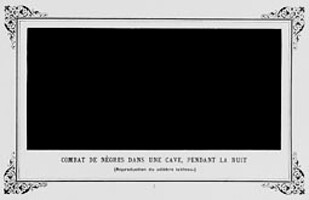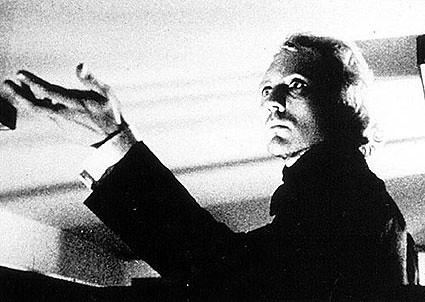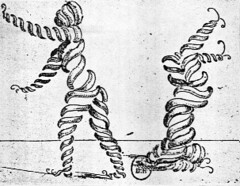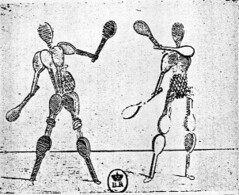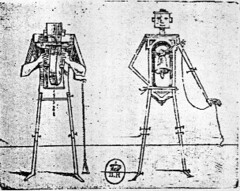
Waiter by Alex van Warmerdam is a superb film by the best Dutch language auteur. The styling of his films always have a retro feel; the interior depicted above reminds me strongly of the Drugstore Cowboy hotel room. In my opinion, Warmerdam deserves an entry in the Sensesofcinema’s directors hall of fame.
See also:
Plot:
Waiter tells the story of Edgar (Alex van Warmerdam), a waiter with a flair for the unfortunate. His wife is sick, his girlfriend Victoria (Ariane Schluter) is overly possessive, customers at work constantly bully him and his neighbours make his life impossible.
Fed up with the way his life is going, Edgar goes to the house of Herman (Mark Rietman), the scriptwriter who invented Edgar and is currently writing his story. Edgar complains about the events in his life that keep getting worse and begs for some positive events in his life, including a decent girlfriend. Herman decides to create Stella (Line Van Wambeke), but soon Edgar realises that Stella will only complicate his life more. Meanwhile Herman is pestered by his pushy girlfriend Suzie (Thekla Reuten), who constantly tries to change the script. Driven to insanity by Edgar and Suzie constantly trying to interfere with his story, Herman decides to make the story more extreme and violent…
Thematically related films:
The Truman Show (Peter Weir, 1998) and Adaptation (Spike Jonze, 2002)
Dutch fabulist
The Dutch fabulist continues to build his own contemporary Northern European mythology, following up on the 2003.
The uncompromising, innovative writer-director himself plays Edgar, the put-upon middle-aged man of the title. Edgar waits tables at the decrepit, cunningly named restaurant The West, where he is abused by his patrons. He is tired of his wife, his demanding mistress and his belligerent neighbours. He goes to the home of Herman (Mark Rietman), the man responsible for writing the story of his life, and begs the author for a change. Much of the blame for his misery lies with Herman’s meddling wife, Suzie (Thekla Reuten), who interferes in her husband’s work by steering Edgar’s life in disagreeable directions.
Van Warmerdam is a master of the theatre of the absurd, as singular a slapstick performer as he is a director. He plays Edgar as a phlegmatic, sullen character who grimly attends to the needs of the patrons at the torpid and soulless restaurant – a space that becomes more and more abstract as Herman loses control of Edgar’s universe.
Van Warmerdam has said that a character whose destiny is completely in another’s hands is necessarily tragic, and he mines this fruitful conceit for all it is worth. His surreal film is a witty and constantly surprising take on fate, creativity and power, taking as its tormented protagonist a man doomed to a life of servitude – not just to his customers, but to the conventions of literary fiction as well. –Dimitri Eipides
A modern character
Van Warmerdam hanteert niet alleen een creatief zwartkomisch scenario, ook maakt hij een knipoog naar de wereld van het scenarioschrijven. Als Edgar aan Herman vraagt waarom die het toch zo slecht met hem voor heeft, antwoordt de gefrustreerde Herman slechts dat hij een ‘modern personage’ is. Een hip, modern filmhuisfilmpersonage, denkt Herman, is een lijdend voorwerp, geen interessante, succesvolle persoon. Van Warmerdam laat Edgar deze opgelegde troosteloosheid met verve aanvechten. Toch loopt Ober nogal abrupt af, alsof Van Warmerdam met eenzelfde writer’s block te maken had als Herman. Hoe graag Edgar zijn leven ook een positieve wending wil geven, de auteur blijft de baas, niet de personages. –René Glas
More Dutch language reviews:
Hyperrealism and surrealism in perfect balance. [Dutch]
Nieuwe Van Warmerdam scoort aardig bij critici [Dutch]

